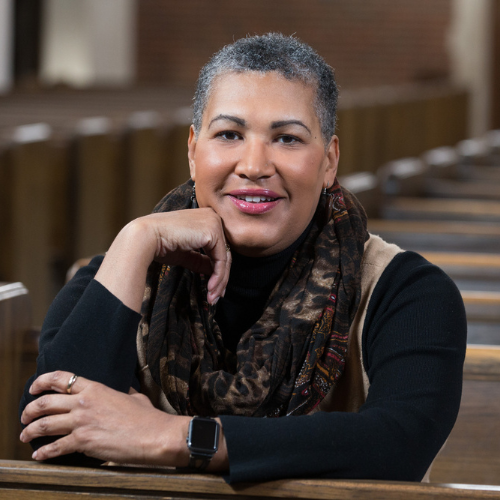It is that time of year. Congregations, publishing houses, camps, and colleges are examining their budgets.
This coming Sunday I will be joining in the work of preaching as a guest in a congregation during their Fall Stewardship Campaign. Even Working Preacher is in the midst of our Fall Campaign. If the move toward Consecration Sunday feels like a whiplash shift from Reformation Sunday or All Saint’s Day, you have recognized the countercultural nature of the work in which we engage as storytellers of the Covenanting God’s creation project. So, let’s find that story.
Whichever text you choose this week, the pangs of existential crises remain central. These texts challenge our synthesizing imagination—not unlike the distractions of random tweets, continuous news reports and multiple communities of expression. Grief seems to have seeped from last week’s services of remembrance into this week’s desire for life. We have no road map, no timeline for when the end will be.
When I think of the ethnic, gender, political, and theological divides that expose and create a multiverse of factions in our homes, congregations, and communities anguish seems a plausible expression.
Yet, in all these places—and to all these people—we are challenged to provoke one another to love and good deeds. Such seems the rehearsal of this past Sunday—whether it’s Jesus’ recognition of the widow’s offering or the hospitality shown by the widow to the prophet Elijah. It’s striking that the week after All Saints we listen to the deeds of generosity from widows. Dare we call our communities to hope amid the horrors we yet encounter?
After more than 600 days of ongoing quadruple pandemics, where experiences of persecution result in revolt, the dystopian eschatology of the reading we have from the book of Daniel this week has new resonance. Like understanding the multiverse (or is it metaverse?) of the Marvel tales, understanding exile, political unrest, questions of sovereignty, and reflecting on faithfulness to the mission deserves more than a one-week episodic nod. So, the apocalyptic hope of the childless person whose partner doesn’t understand the longing to bear a child of their own flesh and blood; or the 2nd-century before Christ suffering the injustices of empire; or the fragility of life experienced in Palestine in the 1st century!—leave us wondering how does death, disease, and disillusionment enable us to practice hospitality in the face of hostility?
The signs of the times are not the ticking clock toward the end. Rather, the increase in wannabe defenders and iconic protectors, wars and conflict, climate related disasters and extreme poverty are merely the beginning of the earth’s sighs that all creation is in need of the life-giving presence of God in flesh. Resurrection, spelled L-I-F-E-A-F-T-E-R-D-E-A-T-H, healing after harm, hope after horror, becomes a promise worth holding especially when the reign of God that is justice seems not as forthcoming as we would like.
Pay attention to the distractions. If we seek to avoid this reality, we become the preoccupied priest who literarily failed to recognize the posture of prayer in the temple sanctuary. We may have almost made it to the end of the Christian calendar, the end of 2021; but for some who have lived, all else has been destroyed. We can attend a concert, but these events are increasingly reported as deadly. Places of employment are opening as in-person venues, but there are no options for childcare. Elderly parents remain confined to the nursing home because of continued outbreaks of COVID. Vaccines are available for children, but Europe’s COVID numbers are increasing. The borders are open, but can we sustain the traffic?
Be attentive to the concerns. Only by expressing full awareness of that which is creating gloom can our offerings of grace from the pulpit connote authentic encouragement. Eli’s assumption exposed his short-sightedness. His assumptions were wrong placed. Therefore, he had nothing to offer Hannah. Without naming the real concerns of your community (not just the global realities), promises of peace are empty.
Be present in every place you find yourself. The world around us is in crisis. Institutions we once trusted are crumbling. Shall we consider that the intimacy of community may be in right relationships rather than rituals of prosperity and security? The temple as an edifice that cannot be destroyed ignores that the God who desired to dwell with the people never asked for a building. At the beginning of Mark, Jesus called fishermen to fish. Jesus invited those—who up to that point had gone daily to where the catch could be found—to go everyday into their world.
But this was not the concern of the disciples. Then, as now, they were concerned with when. Missing the opportunities of the moment, they worried themselves with hints, predictions, and symbols. All while Jesus literally calmed the storms, feed the hungry, crossed social boundaries, and led many back to the liberating promises of Israel’s God. Maybe our concerns should be in the space we occupy on the journey rather than the destination at which we hope to arrive.
That means considering whether Christ the King Sunday (next week) may be in response to the metaphor of place and space this week … all which may shift how we consider Advent as a season of expectation of the return of Christ more than a reflection on the incarnation. (In either case, the spotlight remains on God’s faithfulness to the mission of rescue, redemption, and reconciliation.) But alas, I get ahead of myself in the story.
For this week, find refuge in God. Neither the promise of the stock markets, stability of governments, nor achievements of science offer signs of prosperity, security, and well-being. These are ways humanity report out what is occurring at the moment. And these moments are filled with spasms of distress.
But we are a people who gather week after week to tell the story of the Lord who has been our refuge; the one in which we find all that is good; the promise-keeper whose counsel instructs us when to stand, where to rest, and shows us the path of life. Reminded of this God, like Hannah, we can rise from our prayers of anguish confident that the feeble promises of the pastor-priest is trustworthy because they bear witness to the testimony of the Holy Spirit.
Joy

